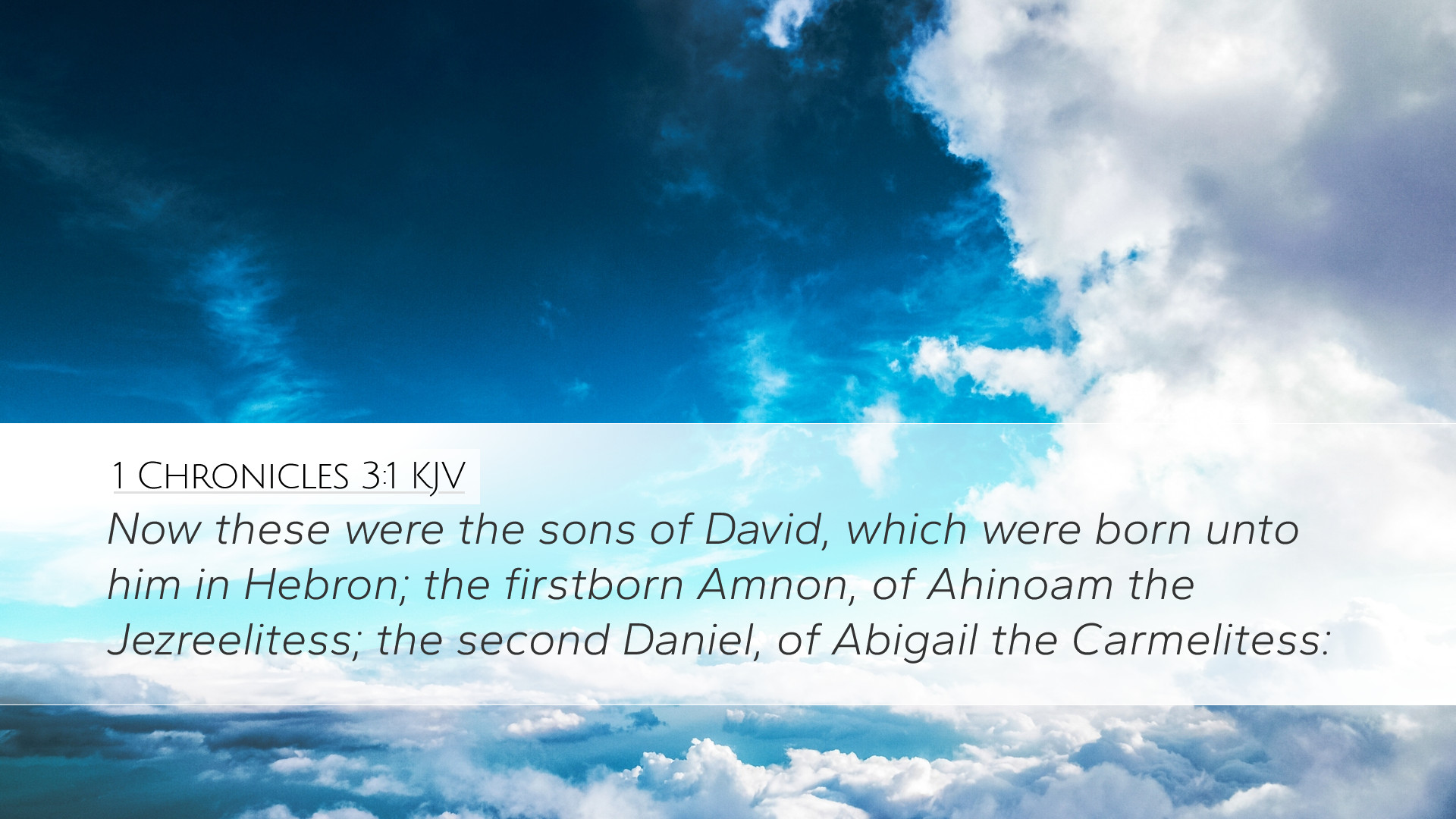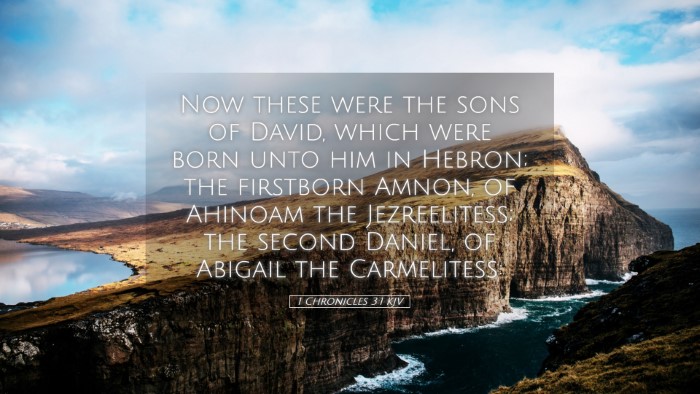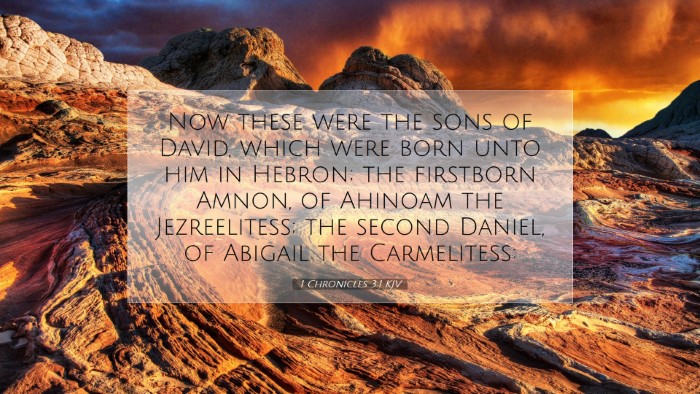Bible Commentary on 1 Chronicles 3:1
Verse Text: "Now these were the sons of David, which were born unto him in Hebron; the firstborn Amnon, of Ahinoam the Jezreelitess; the second Daniel, of Abigail the Carmelite:"
This verse serves as an introduction to the genealogy of David, focusing on his sons born in Hebron. The mention of these names is significant for understanding the lineage of Christ and the heritage of David's royal line. Public domain commentaries provide invaluable insights into the theological and historical contexts of these names.
Genealogical Significance
-
Matthew Henry's Commentary:
Henry emphasizes the importance of genealogy in the scripture, noting that the listing of David's sons serves to establish his royal lineage. It foresees the coming of the Messiah, who would ultimately descend from this line. The focus on Hebron highlights the early period of David's reign before he conquered Jerusalem, signifying a time of preparation and divine blessing.
-
Albert Barnes' Notes:
Barnes points out that the naming of Amnon and Daniel signifies the specific historical context in which these sons were born. Each name reflects the relationships and alliances David established during his reign. Furthermore, David's marital unions are noted here, hinting at the political implications of familial connections.
-
Adam Clarke's Commentary:
Clarke sheds light on the names of these sons, discussing their meanings and implications in the broader narrative of David's life. He notes that Amnon’s life foreshadows the tragic outcomes often associated with David’s house, particularly the moral failings that lead to family conflict.
Contextual Analysis
Understanding this verse requires an awareness of the historical backdrop of David's reign. During this time in Hebron, David was solidifying his power among the tribes of Israel. The record of his sons emphasizes the significance of leadership roles and divine favor.
The Firstborn Amnon
-
Amnon – As the firstborn son of David, Amnon represents the hope of a continuing royal lineage. His subsequent tragic story, which includes his incestuous act with his half-sister Tamar, foreshadows the moral complexities and troubles that would befall David’s family.
The Second Son Daniel
-
Daniel (or Chileab in some texts) is less known but equally important. Barnes notes that while he does not appear prominently in historical accounts, his mention serves to document the complete lineage and offers insight into the lesser-known members of David's household, representing the often overlooked aspects of God’s plan through less prominent figures.
Theological Reflections
This verse encapsulates significant theological truths: the reality of divine favor resting upon David and the unfolding plan of salvation that would come through his lineage. The simplicity of recording names belies the complexity and importance of lineage in biblical narrative.
Preservation of the Lineage: Each son represents a hope and fulfilment of God's promises to David. The audience of Chronicles was likely interested in the fulfillment of God's covenant with David, further highlighted in passages that discuss David's descendants.
Application for Pastoral Ministry
For pastors and church leaders today, this passage reminds us of the importance of legacy and family in ministry. Just as David's lineage was integral to God's plan, family dynamics and relational integrity can significantly impact church health and community.
Conclusion
In summary, 1 Chronicles 3:1 is a pivotal verse for understanding the lineage of David and the theological implications therein. The commentaries of Henry, Barnes, and Clarke provide layered insights that contribute to a rich understanding of this passage. The historical context, genealogical significance, and moral lessons embedded in the names encourage readers to reflect on God's faithfulness through generations and the complex narratives of human relationships.


